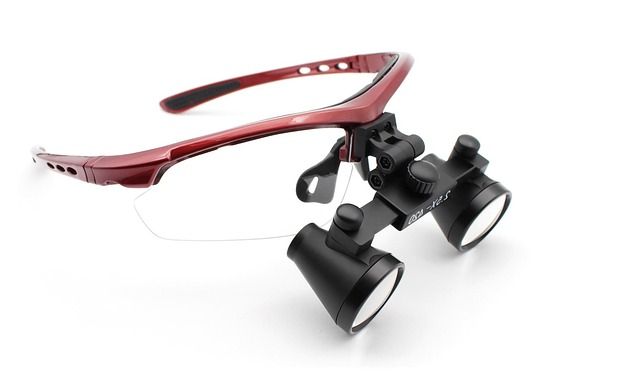Eligibility and Requirements: Getting a Mobility Scooter with Medicare Support
If you're experiencing limited mobility and considering a scooter for daily support, Medicare may help cover the cost under certain conditions. This article outlines who qualifies, what documentation is needed, and how the approval process typically works—so you can better understand your options.
What are Medicare’s criteria for qualifying for a mobility scooter?
Medicare has established specific criteria that must be met for an individual to qualify for coverage of a mobility scooter. These requirements are designed to ensure that the device is medically necessary and appropriate for the beneficiary’s condition. To be eligible, a person must:
-
Have a health condition that causes significant difficulty moving around in their home.
-
Be unable to perform activities of daily living (such as bathing, dressing, or using the bathroom) even with the use of a cane, crutch, or walker.
-
Be able to safely operate and get on and off the scooter, or have someone available to assist them.
-
Have a home environment that can accommodate the use of the mobility scooter.
It’s important to note that Medicare typically only covers mobility scooters for use inside the home. Coverage for outdoor use may be more limited and subject to additional requirements.
How do I obtain a doctor’s order for a mobility scooter?
Obtaining a doctor’s order is a crucial step in the process of getting Medicare coverage for a mobility scooter. Here’s what you need to know:
-
Schedule an appointment with your primary care physician or a specialist familiar with your mobility issues.
-
During the appointment, discuss your mobility challenges and how they affect your daily life.
-
Your doctor will assess your condition and determine if a mobility scooter is medically necessary.
-
If deemed necessary, the doctor will provide a written order or prescription for the mobility scooter.
-
The order should include details about your medical condition, mobility limitations, and why a scooter is required for your daily activities.
Remember that the doctor’s assessment and order are critical components of the Medicare approval process. Be sure to provide comprehensive information about your mobility challenges during the consultation.
What documentation is required for Medicare coverage of a mobility scooter?
In addition to the doctor’s order, Medicare requires specific documentation to support the need for a mobility scooter. The required paperwork typically includes:
-
A detailed written order from your doctor, sometimes called a prescription or Certificate of Medical Necessity (CMN).
-
Medical records that support the need for the mobility scooter, including notes from recent doctor visits and any relevant test results.
-
A home assessment report, which evaluates whether your living space can accommodate the use of a mobility scooter.
-
Proof that other mobility aids (such as canes, walkers, or manual wheelchairs) are insufficient for your needs.
-
Documentation of your ability to operate the scooter safely or confirmation that you have assistance available.
It’s advisable to work closely with your healthcare provider and a Medicare-approved supplier to ensure all necessary documentation is completed accurately and submitted properly.
What types of mobility scooters are typically eligible for Medicare coverage?
Medicare generally covers mobility scooters that are classified as power-operated vehicles (POVs) or scooters. The types of scooters typically eligible for coverage include:
-
Three-wheel scooters: These offer good maneuverability in tight spaces and are often suitable for indoor use.
-
Four-wheel scooters: These provide more stability and are often preferred for outdoor use or by individuals with balance concerns.
-
Travel scooters: Lightweight and portable, these can be disassembled for transport but may have limited range and weight capacity.
-
Heavy-duty scooters: Designed for users with higher weight requirements or those needing enhanced durability.
It’s important to note that Medicare typically covers only basic models that meet the beneficiary’s medical needs. Luxury features or upgrades may not be covered and could result in additional out-of-pocket expenses.
How does the Medicare approval process work for mobility scooters?
The Medicare approval process for mobility scooters involves several steps:
-
Obtain a face-to-face examination and written order from your doctor.
-
Choose a Medicare-approved supplier for your mobility scooter.
-
The supplier will submit a prior authorization request to Medicare on your behalf, including all required documentation.
-
Medicare reviews the request and supporting documents to determine if coverage criteria are met.
-
If approved, Medicare will provide an authorization for the mobility scooter.
-
The supplier can then provide you with the approved scooter and bill Medicare for the covered portion.
The approval process can take several weeks, so it’s advisable to start the process well in advance of when you anticipate needing the mobility scooter.
What are the typical costs and coverage limits for Medicare-supported mobility scooters?
Medicare coverage for mobility scooters falls under the durable medical equipment (DME) benefit. Here’s a breakdown of the typical costs and coverage:
| Aspect | Details |
|---|---|
| Medicare Part B Coverage | 80% of the Medicare-approved amount |
| Beneficiary Responsibility | 20% of the Medicare-approved amount, plus any remaining deductible |
| Rental vs. Purchase | Medicare may cover rental for 13 months, after which ownership transfers to the beneficiary |
| Typical Price Range | $1,000 to $5,000, depending on the model and features |
| Medicare-Approved Amount | Often lower than retail price; beneficiary may be responsible for the difference |
Prices, rates, or cost estimates mentioned in this article are based on the latest available information but may change over time. Independent research is advised before making financial decisions.
In conclusion, obtaining a mobility scooter through Medicare support involves meeting specific eligibility criteria, gathering required documentation, and navigating the approval process. By understanding these requirements and working closely with healthcare providers and approved suppliers, individuals can increase their chances of securing the mobility assistance they need to maintain independence and quality of life.
This article is for informational purposes only and should not be considered medical advice. Please consult a qualified healthcare professional for personalized guidance and treatment.





